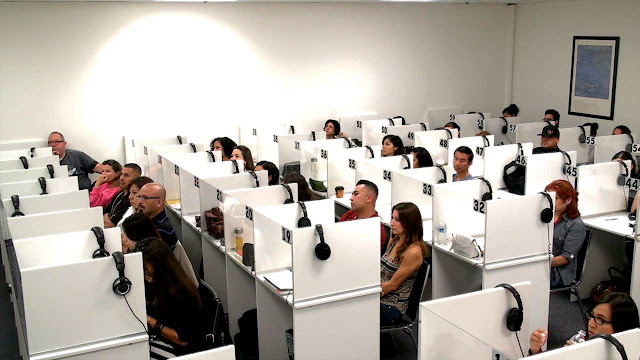NAATI carries out testing for translators and interpreters in both Australia and New Zealand. When someone passes the NAATI professional interpreter or translator examination he or she can then file an application to become a full member of the Australian Institute of Interpreters and Translators (AUSIT) or New Zealand Society of Translators and Interpreters (NZSTI) and if the NAATI paraprofessional examination has been passed, affiliate status of AUSIT and NZSTI is available.
At the moment the examinations are completed using pen and paper but a keyboard is being considered as an option. Interpreting tests are pre-recorded. All the tests have a part on ethics for both interpreters and translators.
How are the NAATI tests marked?
Two markers are responsible for marking each test. If there is any noticeable discrepancy between the two markers a third marker is brought in to assess the discrepancies. The test solutions are based on responses that are considered acceptable not fixed answers or what the marker would have written but accuracy is strongly emphasised. The language quality is evaluated on how accurate it is.
What causes NAATI test failure?
Unfortunately the pass rate is not high, at only 10-15%. This is due mainly to candidates sitting the examination being not fully prepared for it. Some simply sit the test to get migration points to qualify for entry to Australia and many really believe that only a certain level of bilingualism is required to pass the test.
The NAATI translation examination is sat by candidates who lack proficiency in their second language. Often, when translating text from their second language to their first language they fail to understand the text sufficiently enough to conduct a satisfactory translation that will enable them to pass the examination. Some exam takers encounter technique problems too so they don’t use words appropriately when translating.
Candidates sitting the NAATI interpreters test fail because of poor listening skills and so are not able to translate fast enough between the two languages. Poor vocabulary knowledge is a problem too particularly when translating in the legal and medical areas.
To put it simply If you are planning to sit the NAATI translation examination you should begin to prepare early and that means packing in as much practice as you can before the examination date. You must ensure a great deal of proficiency in your second language and that means being able to handle highly complex specialised areas. You will be rewarded when you pass as professional translation services are always on the lookout for those who have passed the NAATI translator’s exam.

